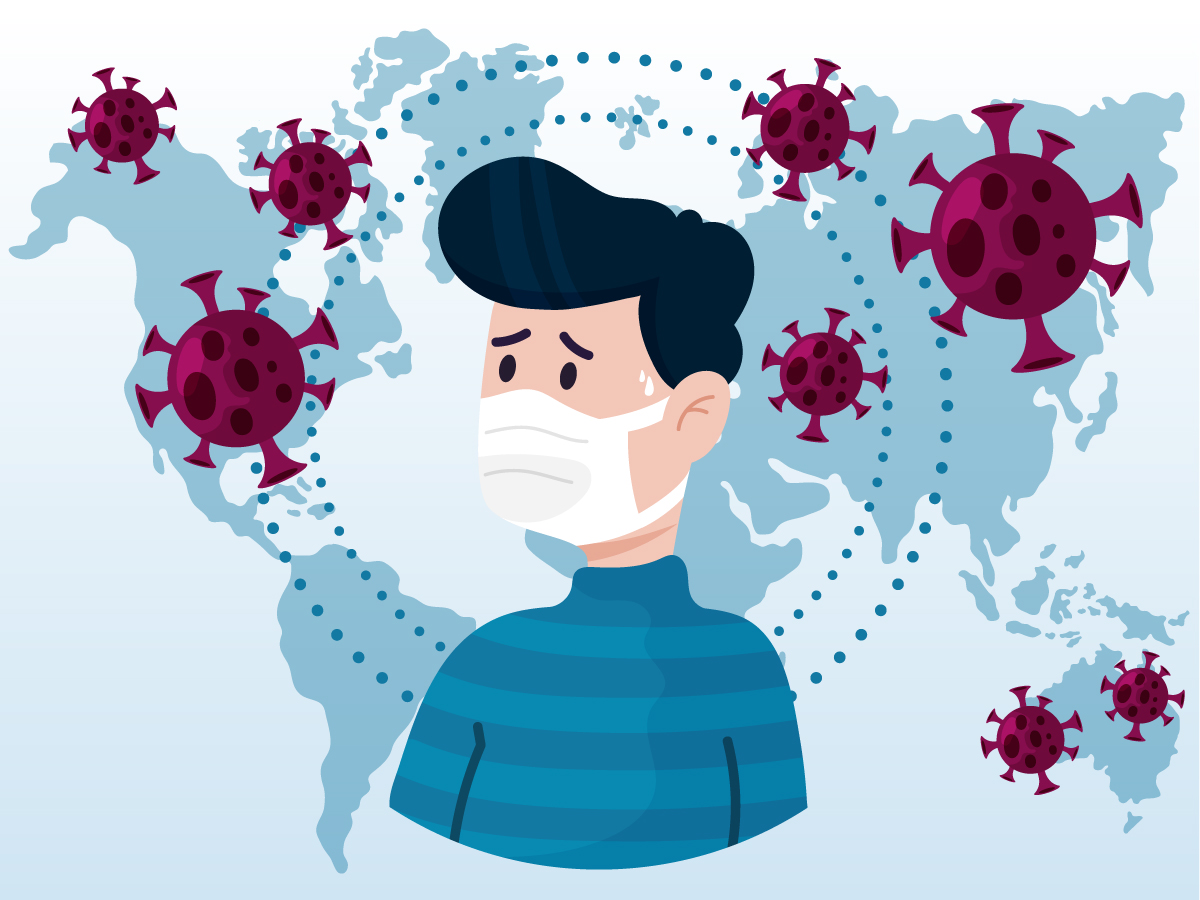
It is impossible not to be affected in some way by Covid19. We are being bombarded by rolling news, and it is affecting routines, relationships and for some people, livelihoods. There is a collective energy that is being emanated out into the world every day, that we cannot escape from.
With each piece of information that we are consuming, we are being primed and braced for threat, and the sympathetic nervous system is kicking into action – in other words, we are going into “fight or flight” mode (Rothschild, 2000). As the intake is so subtle and consistent, it is difficult to spot it happening (and how frequently it is happening). This is both physically and emotionally draining.

As humans, we are also attuned to negative information, and we heed it more quickly than neutral or positive information. This is known as negative bias, and it harks back to the body’s activation (fight or flight) system, being primed for survival (Tierney & Baumeister, 2019).
Negative bias means that we focus on anything that can cause harm – in order to prepare for it, or avoid it. Negative experiences and information are committed to memory quicker than positive ones. Therefore, this becomes the reference point for future experiences.
When we are faced with a terrifying situation that carries a lot of unknowns, we tend to catastrophise – we imagine the worst-case scenario, and scramble to prepare for it. However, this “preparation” rarely leaves the confines of our heads, as we become stuck in negative thought patterns.
The situation that we find ourselves in now due to Covid19 can feel quite paralysing. We feel bereft of control. Major restrictions have been put in place, and this alone is enough to cause anxiety, as our regular routine and structures have been dismantled.
Health anxiety: If you are coping with a health issue currently, if you have previous experience of dealing with health issues, whether personally, or with a loved one, you are bound to feel similarities between experiences.
Separation anxiety: You may be living far away from your family, or you may have a loved one that needs to self-isolate, leaving you unable to connect with them face to face. This is sure to be very distressing and can evoke feelings of loneliness.
Domestic anxiety: Many are working from home now, and it is easy to forget that we go about our daily tasks and activities to the backdrop of a solid structure. Moving that into a new space and having to negotiate the workings of this with others can be very difficult.
FIVE TIPS TO COMBAT COVID19 ANXIETY
- Limit your intake of information and think quality over quantity regarding where you source information. Take a break from becoming informed – remember, by soaking up information you are bracing yourself for threat, and this is draining both physically and emotionally.
- Allow yourself to acknowledge the fact that these are very human and natural responses to a scary situation – allow those feelings to flow, when you feel comfortable to do so. All feelings are valid, and everyone reacts differently to stress and panic, so there is no “right” way.
- Allow yourself to have “worry time” – a set stage of the day where you express these emotions surrounding the current situation. Even better if you can type or write them out. This helps to make sense of spiralling thoughts, slows the pace down, and can help to clear your mind.
- The uncertainty of the situation’s timeline can evoke feelings of powerlessness and overwhelm. To help this, try to think short term – what can you do to maintain structure and control in your own world for the next 24-48 hours. Let the coming weeks look after themselves, and when the time comes, trust that you will be able to deal with what arises.
- Find time for uninterrupted focus. Find something that works for you – bringing you to the here and now. Whether that is meditation, dancing, painting, or playing with kids, find something that resonates with you. Not only will you have this outlet to rely on, but you can find a sense of peace, knowing that you have tools and skills to help ground yourself.
Remember: Anxiety can have a knock-on effect on how you operate in daily life – sleeping, eating patterns, and concentration levels – so if you find yourself struggling, try as best you can to show yourself patience and compassion in this difficult time.


